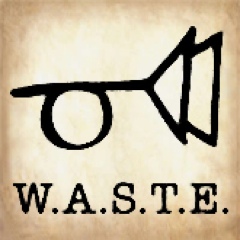Pynchon is famous for his novels, “V” and “Gravity’s Rainbow”, yet this is the only novel I’ve read by him, I first read this as an 18 year old at university, but didn’t really remember the story. This is a postmodern mystery novella based around Oedipa Maas, the executor of a former lovers estate, and her attempt to understand what connects his will and an ancient conflict between two postal services, Thurn und Taxis, and Trystero (or Tristero). There is also mystery around the actual existence of Trystero. Cleverly Pynchon has based his novella on a real postal firm, Thurn und Taxis being founded in Europe around the 17th century, but Trystero is a Pynchon invention. 
I really enjoyed this novella but it leaves many questions unanswered. As Oedipa Maas journeys around southern California she seems to encounter more problems and slowly begins to question her own understanding of what is going on. The reader too should question themselves especially as most of the character names are totally unbelievable; Oedipa Maas, Pierce Inverarity, Dr. Hilarius, Mike Fallopian and Genghis Cohen. There is a hint of Freud in Oedipa and Pierce, the former lovers, but is Pynchon questioning the way we read too much into names within novels? Dr Hilarius, Oedipa’s psychiatrist, is experimenting with prescription LSD, possibly a comment on 60s drug culture, but he is also revealed to be a former NAzi doctor, who eventually thinks he is being tracked down by Jews; “‘You think,’ said Oedipa, ‘then, that they’re trying to bring you back to Israel, to stand trial, like they did Eichmann?’ The shrink kept nodding.” We are left, as is Oedipa, wondering if Hilarius is really being chased by Jews or if he is insane. That leaves Mike Fallopian, which is just a ridiculous name, and Genghis Cohen, an absurd mix of Genghis Khan, and the common Hebrew name Cohen.
What is the point of this novel? I think its a reflection of the era it was written in. In 1965 America was in a state of flux; sex, drugs and rock’n’roll, a slightly chaotic era. Throughout we see allusions to The Beatles, use of drugs, and Oedipa has an affair. It seems to me that Pynchon is questioning 60s culture and how confusing it is, especially as Oedipa herself becomes slightly alienated from the culture she’s spent so much time exploring. The novel closes with the line, “Oedipa settled back, to await the crying of lot 49.” she is waiting to see what comes next, and this is how I see the reader in the 60s, waiting to see what will happen in the future, not worrying about the past.
